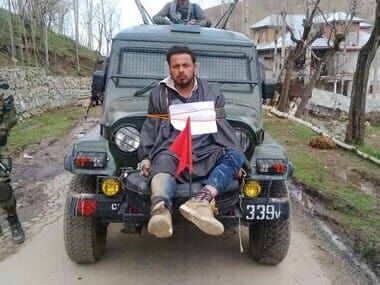UN described India on the "shameful" list
Violence in the name of cow protection, invoking sedition and anti-terror laws to suppress freedom of speech in university campuses and in public, and issues relating to the cultural and religious rights of minorities figure in the concerns raised by various countries.
UN Assistant Secretary-General for human rights Andrew Gilmour, who will present the report to the Human Rights Council next week, said in a statement that the cases in the report were the tip of the iceberg. "We are also increasingly seeing legal, political and administrative hurdles used to intimidate – and silence - civil society," he said.
Against the backdrop of numerous non-governmental organisations, human rights defenders, activists and experts being labelled as 'terrorists' by their governments, it highlights a 'disturbing trend' of national security and counter-terrorism strategies used to block UN access to communities and civil society organisations.
Violence in the name of cow protection, invoking sedition and anti-terror laws to suppress freedom of speech in university campuses and in public, and issues relating to the cultural and religious rights of minorities all figure among the concerns raised by various countries.
"In Kashmir, our recent report on the human rights situation has not been followed up with meaningful improvements, or even open and serious discussions on how the grave issues raised could be addressed. The people of Kashmir have exactly the same rights to justice and dignity as people all over the world, and we urge the authorities to respect them. The Office continues to request permission to visit both sides of the Line Of Control, and in the meantime, will continue its monitoring and reporting," says Gilmour.
The Office of the United Nations High Commissioner for Human Rights has submitted to the UN General Assembly several recommendations from over four-dozen organizations from all over India.
The report goes through due process
This is a complex process that includes reports submitted by the country, the autonomous National Human Rights Commission, various UN agencies, rapporteurs and the civil society.
India, China, Russia and Myanmar are among several countries named in a report by United Nations chief Antonio Guterres that details an 'alarming' level of harsh reprisals and intimidation against those who cooperate with the UN on human rights issues.
The countries named in Annex 1 of the report, in which new cases are listed are Bahrain, Cameroon, China, Colombia, Cuba, the democratic republic of Congo, Djibouti, Egypt, Guatemala, Guyana, Honduras, Hungary, India, Israel, Kyrgyzstan, Maldives, Mali, Morocco, Myanmar, Philippines, Russia, Rwanda, Saudi Arabia, South Sudan, Thailand, Trinidad and Tobago, Turkey, Turkmenistan, and Venezuela. Countries named in Annex 2, where the UN has been following up, and where cases are ongoing, are Algeria, Bahrain, Burundi, China, Egypt, India, Iran, Iraq, Japan, Mexico, Morocco, Myanmar, Pakistan, Rwanda, Saudi Arabia, Thailand, United Arab Emirates, Uzbekistan and Venezuela.
FCRA a way to stamp out civil society initiatives
The report said that the special procedures mandate holders drew attention to the revocation of the license of the Centre for Promotion of Social Concern (also known as People's Watch) under the Foreign Contribution Regulation Act.
The cases of Kartik Murukutla, a member of the Jammu and Kashmir Coalition of Civil Society and Khurram Parvez, Chairperson of the Asian Federation Against Involuntary Disappearances and Program Coordinator of the Central Jammu and Kashmir Coalition of Civil Society (JKCCS), were also mentioned.
Supreme court decision on 377 brought some smiles
But there was some good news in the opening statements by the UN High Commissioner of Human Right for India. "I hail last week's decision by the Supreme Court to decriminalise same-sex relations. Laws that criminalise consensual adult relationships are, as Chief Justice Misra said, manifestly arbitrary and a source of discrimination and harassment. I very much hope other countries around the world will look to India's example in this respect."





